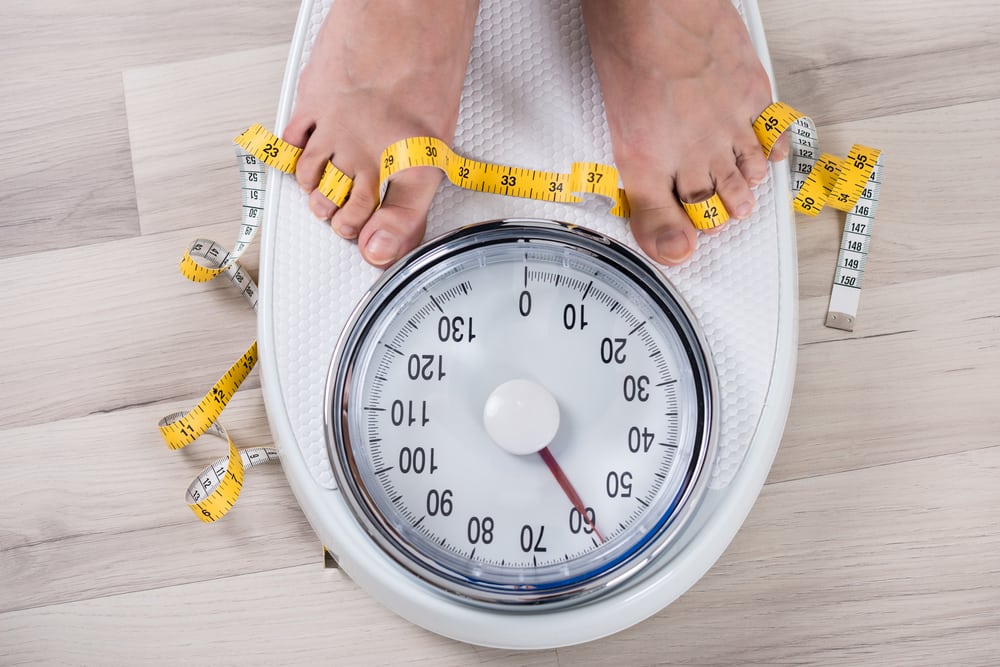Contents:
- Medical Video: The Role of Insulin in the Human Body
- Is it true that insulin injections make fat?
- Not that this side effect can be underestimated
- Do not arbitrarily stop using insulin
- Tips for controlling weight during use of insulin
Medical Video: The Role of Insulin in the Human Body
Insulin injections are one way to manage high blood sugar for people with diabetes. However, some people complain about their weight after a long period of therapy. Is it true that insulin injections make fat, or is the weight gain caused by other things? Read on to find out the answer.
Is it true that insulin injections make fat?
Yes. Increasing body weight is the most common side effect when using insulin. Insulin injections function to increase the hormone insulin in the body, which is not owned by people with diabetes.
The addition of insulin helps the body use glucose stores (blood sugar) as energy for every cell and tissue that it needs. With the help of insulin injections too, your body becomes more efficient at storing glucose so that the body does not experience excess blood sugar. On the other hand, insulin makes the body store glucose in the form of glycogen or fat. This increase in fat makes weight gain.
Not that this side effect can be underestimated
Although these side effects are quite normal and not so dangerous, your weight can increase further if your diet is still poor while continuing to undergo treatment. The more servings you eat and the menu choices are also not healthy, in the end blood sugar can increase sharply. As a result, more blood sugar is stored as fat. This is what causes body weight to rise dramatically while using insulin.
Blood sugar that increases dramatically in a fast time, called hyperglycemia, can also be dangerous. Hyperglycemia is characterized by severe hunger even though you have just eaten, because not all cells of the body that need energy get blood sugar.
Do not arbitrarily stop using insulin
Even though insulin injections make it fat, you can't reduce the frequency and dosage carelessly. Especially stop using it unilaterally without consulting a doctor. This strategy is dangerous. Instead of getting your ideal body weight, high blood sugar that is not controlled by injection of insulin can lead to complications of long-term diabetes that are dangerous.
Tips for controlling weight during use of insulin
Managing food portions and sorting through the food menu are the two main keys to keeping your body weight from rising temporarily in insulin therapy. Choose a food source that contains high complex fiber and cabbage such as whole grains, yogurt, nuts and seeds, and vegetables and fruits that can help provide longer energy while controlling blood sugar staying balanced.
Also keep your portion of food so as not to overdo it so that the weight does not increase. It is better to eat 6 times a day in small portions (spaced every 2-3 hours) so that blood sugar remains stable, rather than 3 times eating rice with piled up dishes that can rise and fall blood sugar quickly. This way of "eating often small portions" also helps prevent you from skipping meals which can be dangerous for blood sugar. Skipping meals can cause blood sugar to drop sharply if you don't adjust it to the dose of insulin.
Finally, balance the exercise routine to burn excess calories in the body so that it is not stored as fat. The American Diabetes Association suggests diabetics to choose aerobic exercise (walking, swimming, jogging, cycling) and strength training (push-ups and weight lifting) to help control their blood sugar levels. Do exercise for at least 150 minutes a week, or at least 30 minutes every day.












